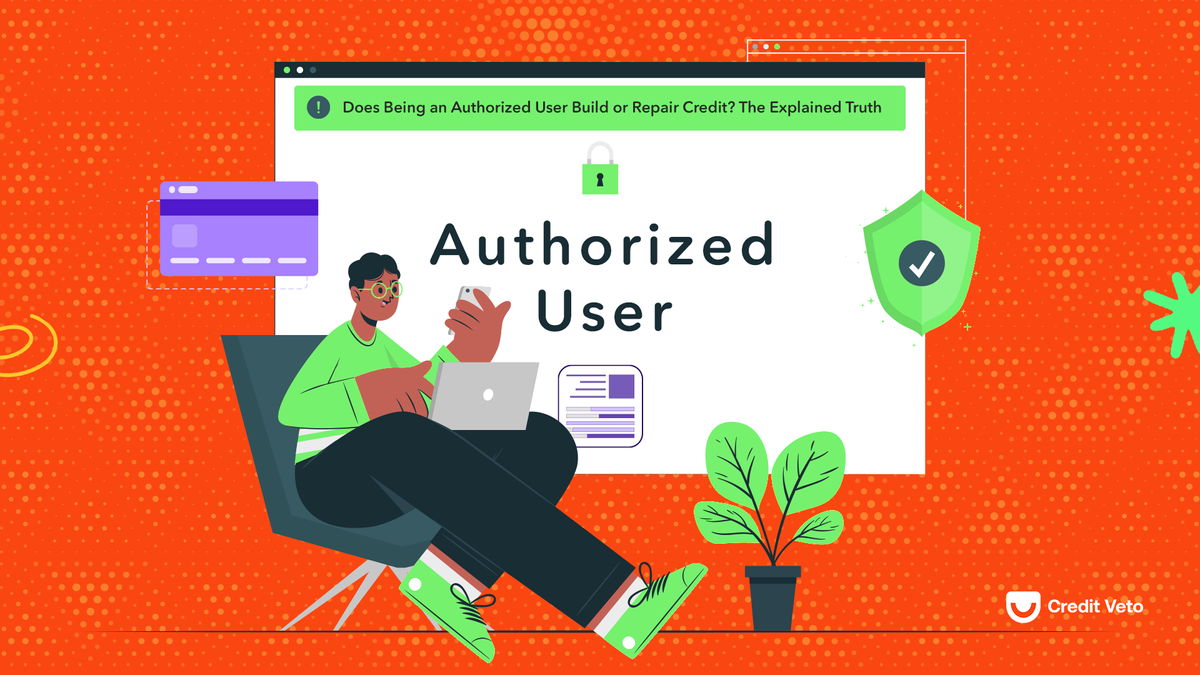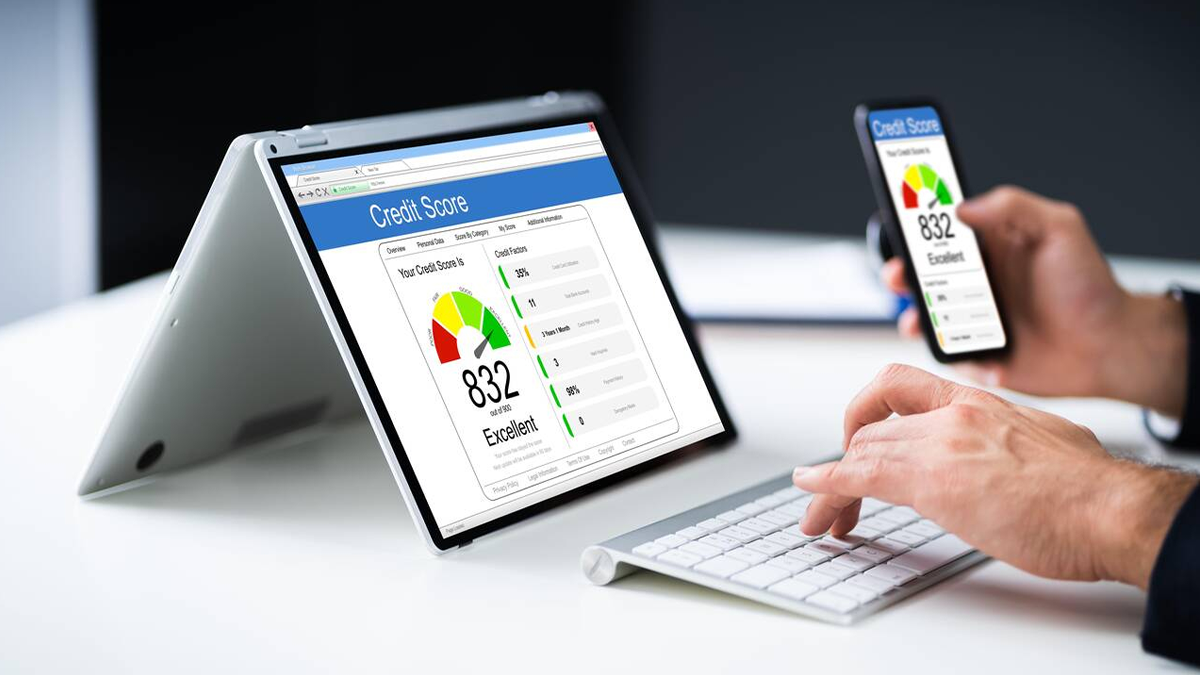Does Being an Authorized User Build or Repair Credit? The Explained Truth
Being an authorized user can help build your credit, and in some cases, it can even aid in credit repair. But there’s a right way and a wrong way to do it, and it’s not a one-size-fits-all solution. Learn how to use this strategy effectively

If you’re working on improving your credit score, chances are you’ve heard about becoming an authorized user on someone else’s credit card. It sounds simple: get added to someone else’s credit card account, and suddenly, their good credit history helps boost your score. But does it really work? And is it the quick fix some people claim it is?
Here’s the truth: Being an authorized user can help build your credit, and in some cases, it can even aid in credit repair. But there’s a right way and a wrong way to do it, and it’s not a one-size-fits-all solution.
Whether you’re starting from scratch or recovering from a financial setback, it’s important to understand how this strategy sometime referred to as credit piggybacking works, whether it’s right for you and more importantly how it impact your FICO and VantageScore?
In this guide, we’re going to explain the truth about how being an authorized user works in terms of credit building and repair. We’ll also answer your most frequently asked questions, such as:
- Does VantageScore count being an authorized user?
- How much will my credit score increase as an authorized user in 30 days?
- Can authorized user status help raise my score if the primary cardholder has perfect payment history?
By the end of this article, you’ll have a clear understanding of whether this strategy is right for you and how to use it effectively.
What Is an Authorized User on a Credit Card?
An authorized user is someone who is added to another person’s credit card account. This can be an effective way to boost your credit score by piggybacking on another person's good credit.
As an authorized user, you get permission to use the credit card, but you are not responsible for making payments. That responsibility stays with the primary account holder.What’s important is that many credit card issuers report the entire account history to the credit bureaus for authorized users.
This means that if the primary account holder has good credit habits, like on-time payments and low credit utilization, those positive behaviors can benefit your credit profile.
Authorized user vs. joint account holder:
You must understand that being an authorized user isn't the same thing as being a joint account holder. Here's the major difference in simple terms.
- Authorized user: Not legally responsible for the debt; only benefits from reporting.
- Joint account holder: Equally responsible for payments and debt.
Does vantagescore Count Being an Authorized User?

Yes, VantageScore does count your status as an authorized user, and this can positively impact your VantageScore just like it would for your FICO score
.
VantageScore, which is used by some lenders, operates similarly to FICO but uses a slightly different model for calculating your score. When you are added as an authorized user, the credit card company reports the primary account holder’s information to the bureaus, and this data is used in calculating your VantageScore as well as your FICO score.
This means that if the primary account holder has a good payment history, it will help boost your credit scores with both FICO and VantageScore.
How Being an Authorized User Can Build Credit
When you’re added as an authorized user to a credit card with a long history of on-time payments, that account’s positive payment history, credit age, and low utilization can be added to your credit report cardholder pays on time.
- Payment History
Payment history makes up 35% of your FICO score, and it’s the most influential factor in determining your credit score. When you are added as an authorized user on an account with consistent on-time payments, this positive history is reported to the credit bureaus.
By benefiting from the primary cardholder’s good payment habits, you may see an increase in your credit score, especially if you have little or no credit history of your own.
- Credit Utilization Ratio
Credit utilization—how much of your available credit you’re using—makes up 30% of your credit score. A high utilization ratio (e.g., using more than 30% of your available credit) can hurt your score, while a low utilization ratio helps improve it.
If the primary cardholder has a low utilization ratio (for example, they’re using only 10-20% of their available credit), this will also be beneficial to your score. Being an authorized user on a credit card with a low balance can improve your credit utilization ratio and potentially raise your credit score.
- Credit Age
Your credit age or the average age of your credit accounts accounts for 15% of your FICO score. The longer your credit history, the better. If you are added as an authorized user on an account that’s been open for several years, this will boost your credit age and can improve your score—even if you don’t have any credit history of your own.
- Hard Inquiry
Becoming an authorized user doesn’t require a credit check on your end. It’s a low-risk way to build credit quickly.
Can Being an Authorized User Repair Bad Credit?
This is where the real truth comes in: being an authorized user can help improve your score, but it’s not a magic fix for past credit mistakes.
Here’s what you need to know:
- If you have late payments, collections, or charge-offs on your credit report, adding an authorized user account won’t erase them.
- It can help offset some of the damage by adding positive data, but it won’t remove negative accounts.
- This method is best for people who have thin or unscorable credit files or are rebuilding after minor setbacks—not for those with severe derogatory marks.
For serious credit repair, you need a comprehensive strategy, which could include credit repair services like Credit Veto that focus on accurate disputes and long-term solutions
How to Know If You Should Become an Authorized User to Build Credit

When considering whether becoming an authorized user is the right strategy for you, there are a few important factors to take into account.
1. Your Credit History
If you are just starting to build credit or have a thin or unscorable credit file(few or no credit accounts), becoming an authorized user on a well-established account can help accelerate your credit building process. In contrast, if you have serious negative marks (late payments, charge-offs, collections), this strategy may not significantly impact those items.
2. The Primary Account Holder’s Credit Health
The benefits of being an authorized user depend largely on the primary account holder’s credit behavior. You’ll want to ensure that the person you’re being added to has good habits:
- On-time payments
- No missed payments
- Low credit card balances
- A strong credit history (ideally 2-3 years old or more)
If they have poor credit habits (high utilization, late payments), it could hurt your score instead of helping it.
3. The Credit Card Issuer’s Reporting Practices
Not all credit card companies report authorized users to the credit bureaus. So, it's essential to verify that the credit card issuer reports authorized users to the major credit bureaus (Equifax, Experian, and TransUnion). Without this, you won’t benefit from the positive history that is associated with the account.
Pro-Tip: Call the credit card issuer to confirm their policy on authorized user reporting. If they don't report, then being added as an authorized user won't help you at all.
The Pros and Cons of Becoming an Authorized User
Let’s break down the pros and cons of becoming an authorized user to help you make an informed decision.
Pros:
- Quick Boost to Your Credit Profile: Being added to an account with long, positive credit history can immediately improve your credit score by influencing key factors like credit utilization and payment history.
- No Credit Check or Approval Process: Unlike applying for a credit card or loan, there’s no hard inquiry on your credit, and you don't need to meet specific credit requirements to be added.
- Helps People with Thin Credit Files: If you’re new to credit or have a limited credit history, becoming an authorized user can give you instant access to the account's positive credit history and boost your score without taking on new debt.
- Improves Credit Age: If the primary account holder’s account is older, it can lengthen your credit history, which helps with your overall score.
Cons:
- Limited Control: You don’t have control over the primary account holder’s actions. If they make late payments or carry high balances, it can negatively affect your credit.
- Not a Complete Solution: While being an authorized user helps boost your score, it does not remove negative marks from your credit report. If you have bad debt, it won’t erase it.
- Risk of Mismanagement: If you don’t communicate with the primary account holder or monitor the account closely, the account could be mismanaged and hurt both of your credit scores.
- Possible Fees: Some credit card companies charge a fee to add an authorized user to the account. This should be disclosed upfront.
How Does the Authorized User Strategy Fit with Your Credit Goals?

If you're serious about repairing your credit, becoming an authorized user can be a strategic addition to your credit repair plan, but it shouldn't be the only step. Here's how this strategy works in combination with other methods:
Credit Repair Services
For serious credit repair, Credit Veto offers custom dispute strategies that focus on removing inaccurate or outdated information. Authorized user status can enhance the credit building process, but disputing negative information is necessary to clean up your credit history fully.
Credit Building Tools
If you're just starting to build your credit, in addition to becoming an authorized user, consider applying for a secured credit card. Secured cards are designed for individuals with little to no credit history and require a deposit that becomes your credit limit. They report to the major credit bureaus, allowing you to build credit responsibly.
Monitor Your Progress
To keep track of your progress, credit monitoring is a must. Regularly checking your credit report through credit monitoring services like that of Credit Veto ensures that the positive information from the authorized user account is being reported correctly, and you can spot any errors or potential issues early.
How Much Credit Score Increase Authorized User in 30 Days?
Many people want to know, “How much will my credit score increase as an authorized user in 30 days?” The answer is it can vary. Typically, you may see a noticeable increase within 30 days if the primary cardholder has a strong credit history and low credit utilization. If they report their credit account frequently, this can help you see an improvement more quickly. However, if the account is newly added or reports infrequently, the increase might take longer to reflect.
FAQs:
Can being an authorized user hurt my credit?
Yes, if the primary account holder mismanages their credit (e.g., late payments, maxing out their credit limit), it could negatively impact your credit score. It’s essential to ensure the primary cardholder has good credit habits.
How long does it take for an authorized user to affect my credit?
You may start seeing improvements within 1-2 months, but it depends on the credit card issuer’s reporting cycle and how long it takes for the data to reflect on your credit report.
Does being an authorized user give me full access to the credit card?
No, as an authorized user, you can use the card, but you aren’t responsible for payments. The primary account holder is responsible for paying off the debt.
How much will my credit score increase by becoming an authorized user?
The exact impact varies from person to person. It depends on the credit history of the primary cardholder, how well they manage their account, and other factors affecting your credit score. Typically, authorized users see a 5-50 point increase, but results will vary.
What happens if the primary account holder stops paying their credit card bills?
If the primary cardholder misses payments or carries high balances, it can negatively affect your credit score, even if you are an authorized user. It’s crucial to ensure the person adding you as an authorized user has good credit habits.
Conclusion: Is Becoming an Authorized User Right for You?
Being an authorized user can help you build credit quickly, especially if you have no credit history or are recovering from minor credit issues. However, it is important to remember that it will not repair existing damage to your credit, and the success of the strategy depends heavily on the primary account holder’s credit habits.
If you want to maximize the benefits of being an authorized user, consider pairing this strategy with a custom credit repair strategy that can help remove negative items and improve your overall credit health.
If you need help navigating credit repair, Credit Veto offers expert credit assistance to help you understand the best strategies to build, maintain, and repair your credit for long-term success.
Ready to start your credit journey? Contact Credit Veto today for a free consultation and let us guide you toward a better credit future.




Comments ()